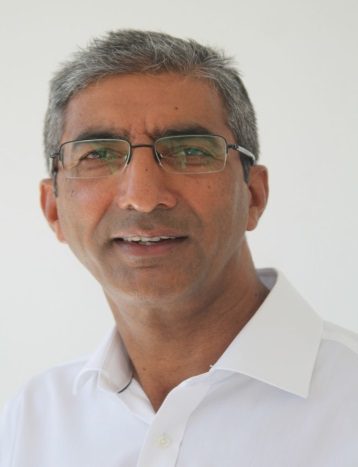Darshan is a dynamic, insightful management consultant with a wealth of international consulting expertise in Strategic Planning, Facilitating Change, HRM, Talent Management, Succession Planning, Coaching, Mentoring, Management & Leadership training design and delivery.
Since joining MTI Consulting Bahrain, he has been involved in projects across Europe and the Middle East with the Club Managers Association of Europe (CMAE). His clients also include global brands such as Mars, Coca-Cola, Baskin Robbins, Phillip Morris, Four Seasons Hotel as well as regional and local companies in the Middle East and Asia.
Darshan’s career began in 1980 with the Mars Corporation in the UK followed by a strategic training and development role based out of Singapore working across the Far East. He was also a member of the pioneer team for the introduction of Mars into China. In 1994, Darshan joined Masterfoods, Dubai to build regional management capability for the Mars Corporation establishing the Mars Academy of Sales, Dubai.
He joined The Coca-Cola Company in 1996 as Human Resources Manager for the Middle East and North Africa (MENA) to support human resources development across twelve countries.
Darshan became the Head of the Leadership and Management Learning Centre at Bahrain Institute of Banking and Finance (BIBF) in 2003. He designed and delivered people development solutions to a broad sector of both financial and non-financial organizations in the Middle East including The Royal Golf Club, Bahrain. In 2007, Darshan was appointed as Senior Vice President, Human Resource Development at Gulf International Bank, Bahrain.
His vision 2020 is to support individuals, teams and organizations to reach their true potential.
He used to “change light bulbs” but now helps people to change their lives!
Session Description
Driving Change
“How do we use change, instead of fighting against it?”
Core competencies covered: Inspirational Leadership/ Change Management
This session will help you to understand how to adapt your behaviors in your journey, to the needs of the workplace, and how to regulate the right responses to the changes that are constantly taking place in the world around us. So, why is change an important topic for today’s business leaders?
According to the world economic forum, by the year 2030, 30% of all jobs will be automated and many jobs will simply disappear through use of technology transformation. Disruption in the workplace will be common, up-skilling and re-skilling will be essential as business models as job roles change. Being prepared for change, how to drive change, mange one-self and others through change, will be the new form of competitive advantage in the golf club industry.
It is commonly accepted in business that 70% of change programs fail. “Resistance to change” is a common explanation of why change programs fail; that employees resist change, but why is this?
This session will open your minds. By using neuroscience, we can establish that different individual’s respond to change in different ways and those responses are, in fact, brain-based. The role of neuroscience is to explain behavior in terms of the activities of the brain. How the brain marshals its billions of individual nerve cells to produce behavior, and how these cells are influenced by the environment.
With regard to our brain and learning, human beings are a continuous work-in-progress. Your brain is different today than it was yesterday. Neuroplasticity is the concept that our brain, and therefore our behaviors change over time. We will take a look at works of many noble writers on how to manage change and lead oneself and others by understanding what happens in our journey when change occurs be it in our personal or professional life, and give you the tools and framework to shape your behaviour.
This will also help you to increase your self-awareness and self-management to understand how the mind and brain can work in partnership to enable you to motivate yourself in order to take better control of your journey. The new thinking is “Driving Change”
Learning outcomes
- Understand why you react to change in the way you do
- How to manage yourself through change
- Understand how your brain functions to optimise your journey through change and life long learning


